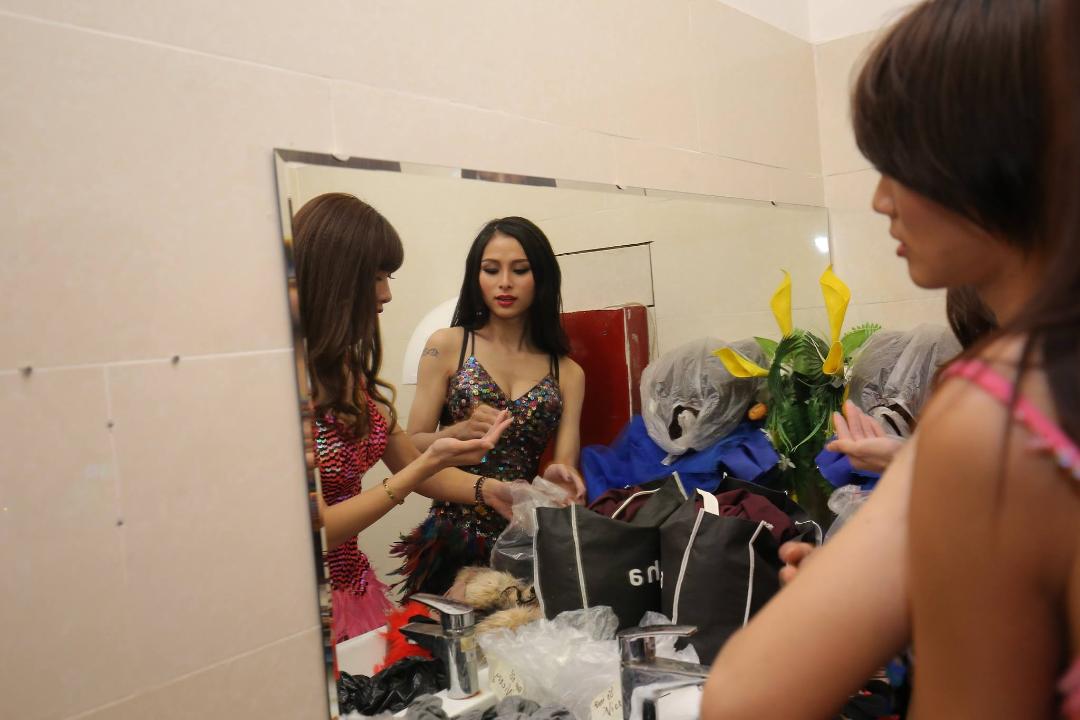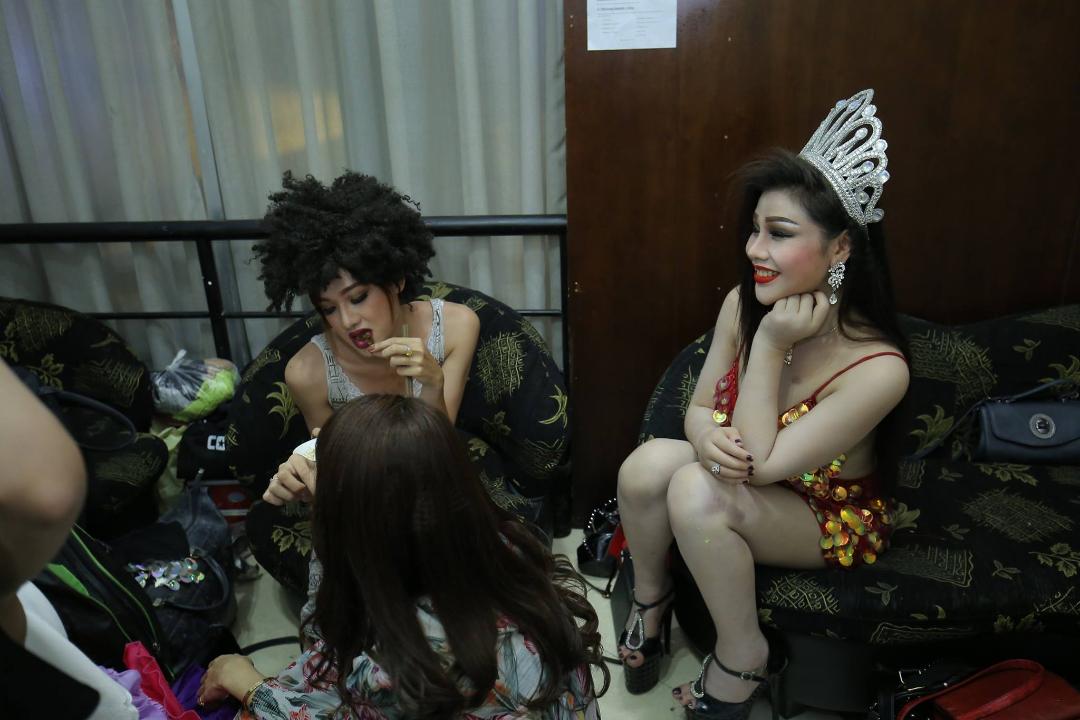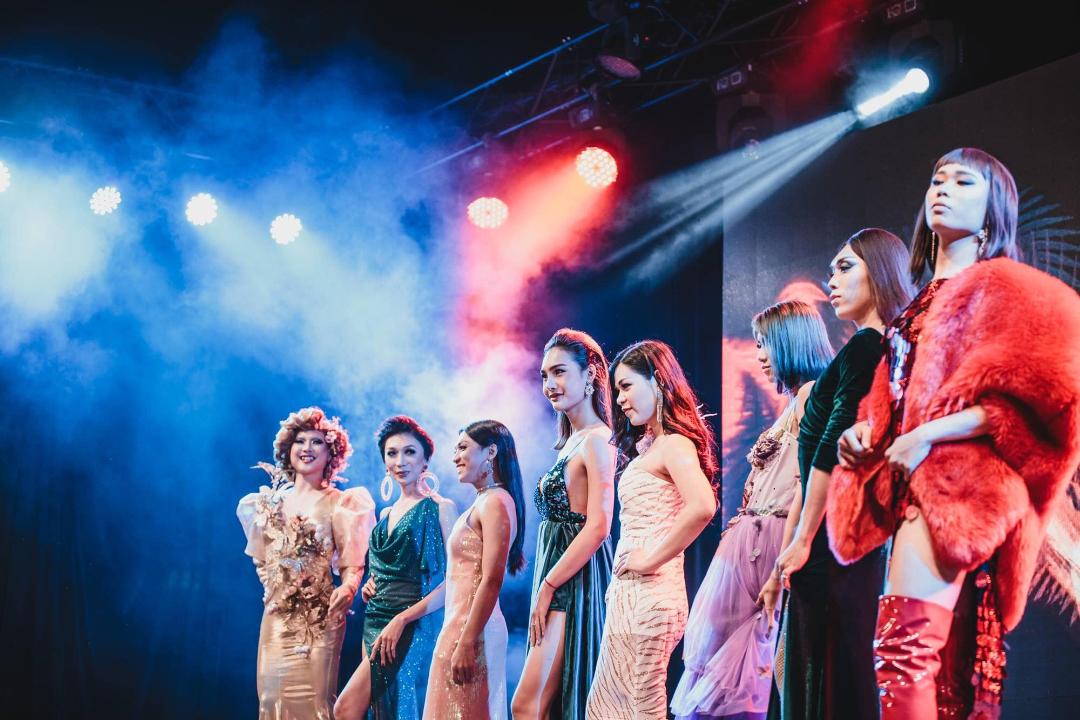How One Woman Created a Home for the Trans Community in Vietnam
Credit to Author: Zoe Osborne| Date: Wed, 01 May 2019 11:23:47 +0000
This article originally appeared on VICE ASIA.
Jessica is sitting in her costume workshop among a mess of rainbow feathers and sequins that almost sprawls into the alleyway. Around her people sew seams, attach beadwork, and loudly compare Instagram accounts.
A pretty, curvy transgender woman in her thirties, Jessica Ca is co-owner and head designer for the business, which makes her something of an anomaly in Ho Chi Minh City. But her status as a drag queen and general mentor to Vietnam’s transgender community is what really sets her apart.
Jessica is the founder and head performer at Ho Chi Minh’s only transgender nightclub: J’S Band. She started the place back in 2012, along with four other transgender singers and dancers, at a time when she was struggling to make ends meet.

Like many in Vietnam’s transgender community Jessica had left her rural home after her parents refused to accept her choice to live as woman.
“I had nowhere to go, so I came all the way to Ho Chi Minh City,” she says.
Supporting herself in the big city for the first time was tough, especially when choosing to live as a woman denied her access to most permanent jobs. “At that time I was basically just freelancing everywhere… I would do any job that would feed me and would pay my bills. You know very petty jobs—doing dishes, running tables.”
Eventually Jessica landed work as a runner for a film production studio. Then, over the years, she worked her way up the ladder into makeup and styling.
“I was finally making enough money to support myself,” she says. “I started finding new opportunities for other people as well… young trans people who were just like I was, who didn’t have a place to go.”
Jessica began performing in 2009 and founded J’S Band three years later. There she gradually gained a reputation in Vietnam’s LGBTQ community to the point where others began coming to her for help.
Today, J’S Band has several thousand Facebook followers, but it is first and foremost a lifeline for Vietnam’s wider LGBTQ community. The club operates from Jessica’s Ca’s Boutique and offers shelter, employment, and family for young trans people—as well as the chance to perform on stage as part of the hottest drag group in the country.

In 2015, Vietnam’s National Assembly revised the Civil Code, enabling the country to recognise gender reassignment after surgery. Jessica was among the thousands of trans men and women who welcomed the change, although she says improved legislation didn’t mean a lot in practice.
“Officially the laws have changed and there are trans people who have managed to legally declare themselves as the gender that they chose, but… the vast majority of [them] come from the provinces where you can grease some pockets and get things to move along.”
Often this means people arrive in the cities to find that the provincial recognition they received via bribery is no longer valid, and without legal paperwork something as simple as opening a bank account can be impossible.
“The things that I own, they are not actually in my name on paper because I’m not allowed to own them,” says Jessica. “You know, you go to the bank and you want to open an account, they demand your ID card… If I declare a bill for a transaction in my business, I can’t even do it myself! I have to do it through a company owned by one of my students.”
Many transgender people also find it hard to find work or access healthcare as their chosen gender. There are no official job sites for LGBTQ people, and many mainstream businesses are reluctant to hire people who don’t match their ID.
“I have a Facebook fan page [for job opportunities] and as far as I know that’s the best thing there is here in Vietnam approaching an official entity for providing work for LGBTQ people,” says Jessica.
She explains that most of the young trans people who come to her have nowhere else to go. Like she did, they find themselves alone at a young age, isolated by society’s lack of understanding about the LGBTQ community.

“Sadly… some parents react very negatively towards their kids for coming out,” explains another drag Queen, stage name Sen Riot. “Some people get kicked out of their home… You gotta do what you gotta do to survive on the streets, take any jobs you can get to help you get by. Even the worst ones.”
According to Sen, Vietnamese society is not yet equipped to understand the concept of being transgender, let alone accept it. Even the topics of gender and sexuality are often seen as taboo.
“There are boxes with labels that people are placed into, and if you don’t fit into any boxes you’d be considered an outcast of society,” he explains.
It’s because of this that most work opportunities and support options for the LGBTQ community rely on word of mouth. Since J’S Band blew up, there have been a number of other burgeoning initiatives across Vietnam, from RuPaul-inspired drag parties in Hanoi to extravagant Full Disclosure parties in Ho Chi Minh City. There are even new health clinics popping up to cater specifically to the LGBTQ community.
Sen runs another Saigon-based initiative with co-founder Esta Ricardo, aimed at giving LGBTQ people a safe space to explore and express themselves. Genderfunk is an inclusive queer party series, focusing on bringing people together across boundaries of gender and sexuality.
“As Rupaul said: ‘we as gay people get to choose our family and the people we are around. I am your family. We are a family here.’ I live by that word everyday,” says Sen. “We created a community, a house, a home for all the queer individuals out there to come and feel like they’re part of our family.”
Social media also plays a significant role in changing people’s perceptions of drag. The more Queens go public with their stories, talents, and incredible looks, the more the taboo of self-exploration is broken down.
“I can see the shift in the way that society treat us,” says Sen. “Ricardo and I are still in awe to see the number of people coming to our events, and support keeps increasing by the hundreds every [time].”
But for Jessica, society’s understanding of the LGBTQ community is less important than the community’s understanding of itself.
“A lot of trans people internalise feelings of shame and fear and anger… so they feel like they deserve society’s ridicule,” says Jessica. “But acceptance doesn’t come from other people; it comes within yourself first… If you internalise that self-hatred the other side will feel justified in hating what you are.”
As the number of dazzling out-and-proud Queens continues to grow, Vietnam’s transgender community is slowly beginning to embrace itself. And while social change is always slow, things are moving forward.
Follow Zoe on Twitter
This article originally appeared on VICE ASIA.